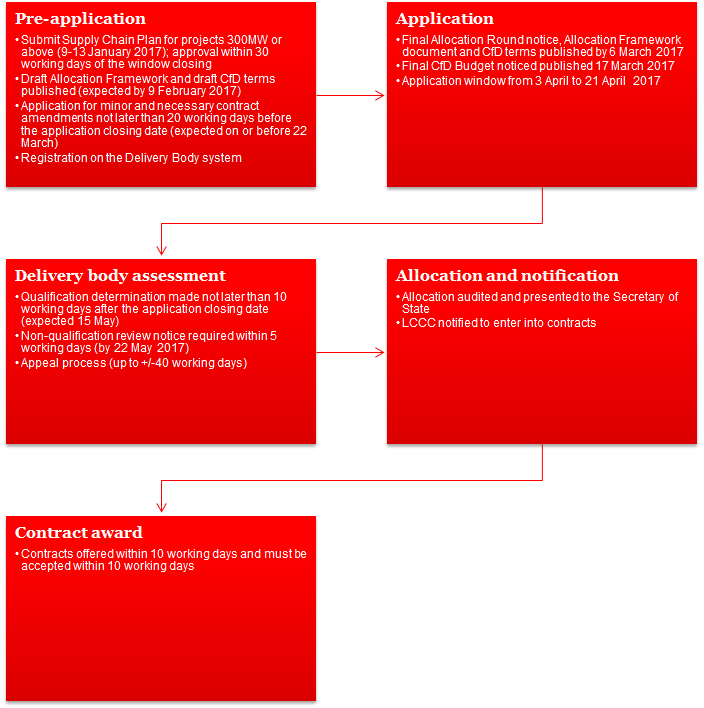Wave and tidal stream will find it hard to compete in AR2. At £320/MWh and £328/MWh respectively, their levelised costs are over 200 per cent higher than those of offshore wind3. In a competitive auction, it will be hard for these projects to compete with lower cost technologies. Wave and tidal stream technologies were allocated a 100MW maximum across the Renewables Obligation (RO) and CfD policies in the first delivery plan period ending 2018/19, effectively ring-fencing budget for them, reflecting the fact that these are less developed technologies4. Under the CfD, a 10MW minimum was allocated until 2018/19 but the UK Government declined to extend it to AR2, explaining that to do so “does not represent good value for money for consumers”5.
In AR2, a cumulative maximum (of 150MW or a budget maximum of £70m in 2012 prices) will be applied to ‘fuelled’ renewable technologies: those that burn renewable fuel to generate power. Technologies included in this combined maximum are Dedicated Biomass with CHP, Advanced Conversion Technologies and Anaerobic Digestion.
The Government has also published a Call for Evidence alongside the AR2 announcement and is considering the role of these technologies, together with biomass conversion, in future allocation rounds.
Of particular focus, will be the interaction between support for heat and electricity, where the Government is looking for input in relation to which technologies have the potential to make a contribution to decarbonising heat in the UK, and appears to be seeking industry commitments to cost reductions, similar to those made by the offshore wind industry.
The Government is also seeking views on the interaction between the Renewable Heat Incentive (RHI) and the CfD mechanism. The RHI was set at the last Spending Review for a 5 year period to 2020/21, whereas AR2 covers a different period (2021-23). This effectively means that bidders need to make assumptions regarding the level of support for heat post 2020/21. In addition, respondents are asked to consider whether the contractual consequences under the CfD of plants losing their heat offtaker renders these projects unbankable. Under the CfD terms, the loss of a valid CHPQA Guidance Note 44 Certificate for more than 5 years risks reducing difference payments to zero.





